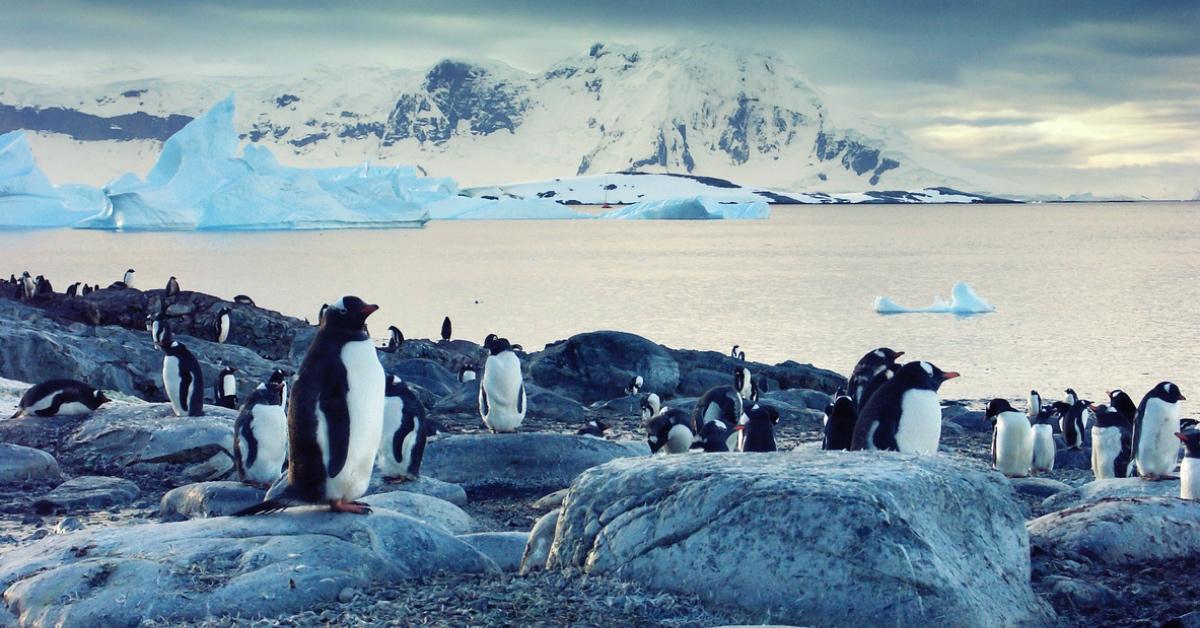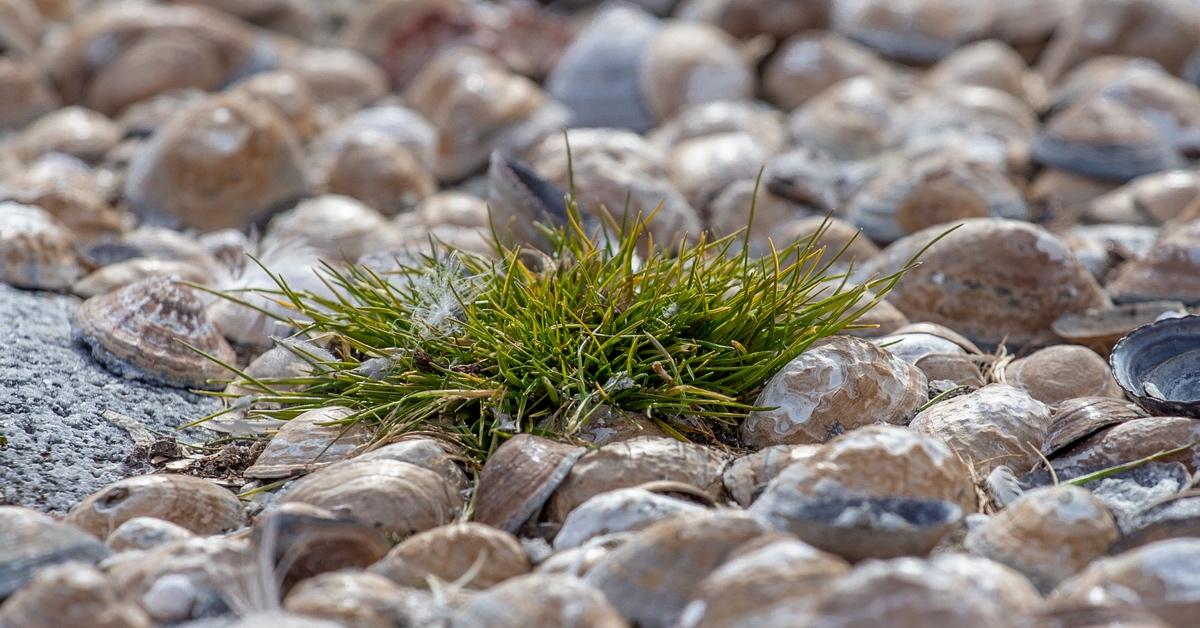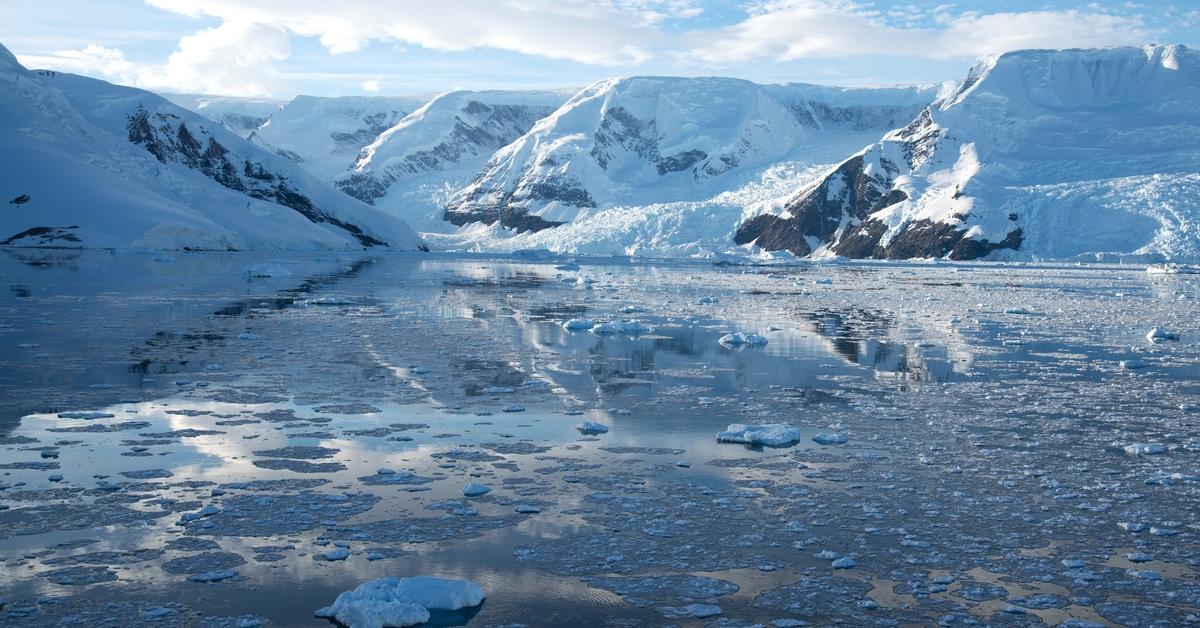Antarctica Is 'Greening' Thanks to Climate Change: What That Means
A warming Antarctica could cause "fundamental changes to the biology and landscape of this iconic and vulnerable region."
Updated Oct. 11 2024, 10:23 a.m. ET

Some of the most alarming climate change coverage stems from changes in Antarctica. While the East Antarctic Plateau remains the coldest place on Earth, per USA Today, headlines about melting icebergs, dying polar bears, and a rapidly warming planet showcase how deeply climate change has affected even the most seemingly impenetrable places on our planet.
First, in September 2023, a photograph of flowers in Antarctica went viral on social media. Then, in October 2024, researchers studying satellite data of Antarctica announced their findings, including that the spread of plants across Antarctica has accelerated since 2016. Keep reading for what you should know about the "greening" of Antarctica, explained.

Are there flowers in Antarctica?
After a photograph purporting to be flowers blooming in Antarctica went viral on X in September 2023, Snopes quickly fact-checked and determined that the photo was of Greenland, not Antarctica. Regardless, the viral photo started a conversation with a sad result: yes, more flowers than ever before were blooming in Antarctica, but no, that's not a good thing.
According to Earth.org, two flowering plants exist in Antarctica: Antarctic Pearlwort and Antarctic Hair Grass. Growth of these plants has skyrocketed in recent years thanks to climate change, per a 2022 study of Signy Island, to the north of the Antarctic peninsula. While some may take plants thriving in a harsh environment as a sign of resilience, it's important to recognize that these greens thrive because of warming temperatures.
The growth of these plants also threatens other native plants, such as mosses and lichens, as they outcompete them for resources.

Antarctica turning green is a powerful climate change signifier.
On Oct. 4, 2024, researchers published a study in the journal Nature Geoscience based on analysis of Landsat images from 1986 to 2021. According to Dr. Thomas Roland, who co-led the study, while Antarctica is still primarily ice and snow, there is a "tiny fraction" of the peninsula covered in plant life where it wasn't before thanks to human-led climate change.
Dr Olly Bartlett, also one of the study co-leads, spoke to the Guardian and explained, "Soil in Antarctica is mostly poor or nonexistent, but this increase in plant life will add organic matter, and facilitate soil formation. This raises the risk of non-native and invasive species arriving, possibly carried by eco-tourists, scientists or other visitors to the continent."
According to Weather & Radar, invasive species taking over could lead to a "larger-scale domino effect, disrupting the balance of the local environment and ecosystem."

Conservation biologist Jennifer Lee explained that the more ice-free land in Antarctica, the more room plants will have to spread out, potentially leading to "irreversible biodiversity loss," per Science Alert.
"We know that there will be thousands of square kilometers of new-ice free area and the warmer temperatures and extra available water will create new habitats ripe for colonization, which will benefit some species and not others," Lee added.
Although flowers blooming may seem like a positive side effect, we need to continue to be vigilant about the ways climate change impacts the world and continue to pressure world leaders to reduce emissions.
This article, originally published on Dec. 29, 2023, has been updated.